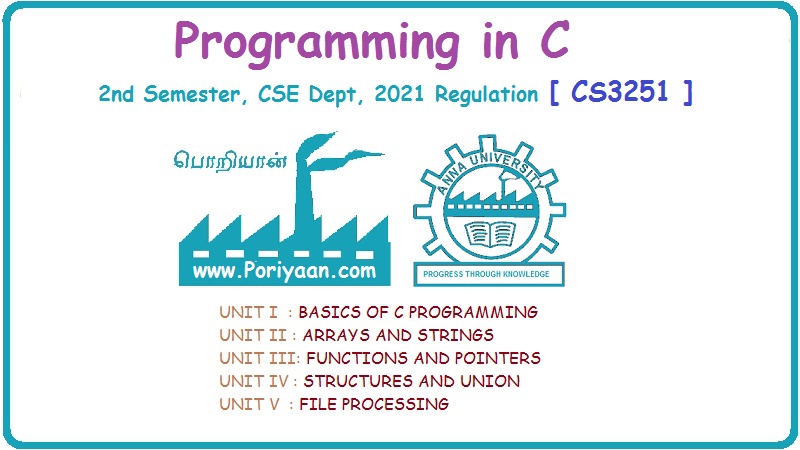Programming in C: Unit I (d): Preprocessor Directives
#Error Directive
with Example C Programs | Preprocessor Directives
The #error directive is used to produce compiler-time error messages. The syntax of this directive is #error string.The error messages include the argument string.
#ERROR
DIRECTIVE
The
#error directive is used to produce compiler-time error messages. The syntax of
this directive is
#error string
The
error messages include the argument
string. The #error directive is
usually used to detect programming inconsistencies and violation of constraints
during preprocessing. When #error
directive is encountered, the compilation process terminates and the message
specified in string is printed to stderr. For example, consider the piece
of codes given below which illustrates error processing during preprocessing:
#ifndef SQUARE
of #error MACRO not defined.
#endif
#ifndef VERSION
#error Version number is not
specified.
#endif
#ifdef WINDOWS
/* Windows specific code */
#else
#error "This code works only
on WINDOWS operating system"
#endif
The
#error directive causes the preprocessor to report a fatal error.
Here
the string need not be enclosed within double quotes. It is a good programming
practice to enclose the string in double quotes. The #error directive is a very important directive mainly because of
two reasons:
•
First, it helps you to determine whether a given line is being compiled or not.
•
Second, when used within a heavily parameterized body of code, it helps to
ensure that a particular MACRO has
been defined.
Besides
the #error directive, there is
another directive #warning, which
causes the preprocessor to issue a warning and continue preprocessing. The #warning directive is same as that of #error.
#warning string
Here, string is the warning message that has to be displayed. One important place where #warning directive can be used is in obsolete header files. You can display a message directing the user to the header file which should be used instead.Programming in C: Unit I (d): Preprocessor Directives : Tag: : with Example C Programs | Preprocessor Directives - #Error Directive
Related Topics
Related Subjects
Programming in C
CS3251 2nd Semester CSE Dept 2021 | Regulation | 2nd Semester CSE Dept 2021 Regulation
